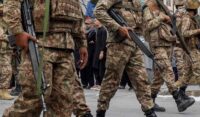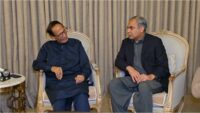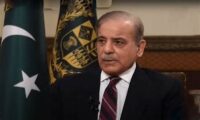After the leadership transition from Benazir Bhutto to Asif Zardari, the Pakistan Peoples Party (PPP) underwent a shift in its approach, moving away from grassroots connections to a more transactional style of politics. While this maneuvering helped the PPP maintain a presence in the national political landscape, it also raised questions about the party’s long-term strategy.
59 percent Japanese show strong intent to pick Pakistan as tourist destination
Indian gov’t official directed Sikh separatist’s assassination plot in US
Info Minister reiterates support to oppressed people of IIOJK
For more such Opinions & blogs, click here.
During its involvement in the Pakistan Democratic Movement (PDM) government, Zardari, shrewdly, kept the PPP at a distance from fully embracing or aligning with the Pakistan Muslim League-Nawaz (PML-N)’s fiscal policies, despite Bilawal Bhutto serving as the Foreign Minister. This deliberate positioning showcased a certain pragmatism but highlighted a potential lack of a cohesive party strategy.
The PPP now faces a challenge as prominent figures, initially expected to join its ranks, have either formed their own parties or aligned with other political entities, such as Jehangir Tareen’s party. This trend raises questions about the PPP’s ability to attract key players and build a broad-based coalition.
PM Kakar set to steer Pakistan’s course at COP28 in Dubai
We Are Not Ready to Accept Orders Against Islamic Laws: Afghanistan
While the party remains strong in Baluchistan, its support in Punjab has notably declined. The PPP has yet to announce any rally in Punjab, with rumors suggesting a potential rally in Southern Punjab only. The erosion of support in Punjab underscores the need for a strategic rethink, especially in a province that has traditionally been a significant political battleground.
Furthermore, public disagreements between Zardari and Bilawal have come to light, with Zardari publicly rebuking Bilawal in a recent message. These internal tensions, emerging just months before crucial elections, signal a potential fracture within the party’s leadership.
In Sindh, the PPP finds itself marginalized, and the possibility of a coalition between either the Muttahida Qaumi Movement (MQM) and PML-N or MQM and Pakistan Tehreek-e-Insaf (PTI) could further diminish its influence in the region.
Afghan Embassy in India to Reopen in Coming Days: Stanikzai
Wakhan Corridor Important for Trade: Afghan Chamber of Commerce
Recognizing the urgency of the situation, Chairman Bilawal Bhutto Zardari left for a grand rally in Quetta, marking the PPP’s 56th Foundation Day. This event presents an opportunity for the PPP to reassert its presence and articulate a renewed vision, addressing the challenges it faces across various provinces.
As the political landscape evolves, the PPP must formulate a clear and cohesive strategy that goes beyond short-term maneuvers. The party’s ability to adapt, unify its leadership, and connect with the electorate will be crucial in navigating the complexities of contemporary Pakistani politics.
For more such Opinions & blogs, click here.
Sniffer Dog ‘Leo’ Found Missing Mumbai Child, 6, Within Hours
States On Alert After Centre Flags Surge In China Respiratory Infections
Taliban Says Afghan Consulates Reopened In Mumbai, Hyderabad
Emraan Hashmi says he waited for 1.5 hours to see Aishwarya Rai
The writer is a lawyer, academic and political analyst. She has authored a book titled ‘A Comparative Analysis of Media & Media Laws in Pakistan.’ She can be contacted at: yasmeenali62@gmail.com and tweets at @yasmeen_9
Stay tuned to Baaghi TV for more. Download our app for the latest news, updates & interesting content!






